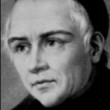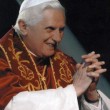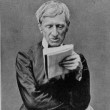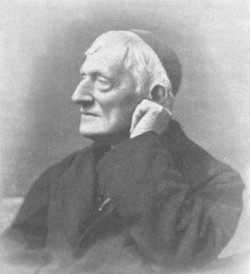 Sr. Lutgart Govaert FSO
Sr. Lutgart Govaert FSO
“If Mary is the Mother of God, Christ must be literally Emmanuel, God with us. And hence it was, that, when time went on, and the bad spirits and false prophets grew stronger and bolder, and found a way into the Catholic body itself, then the Church, guided by God, could find no more effectual and sure way of expelling them than that of using this word Deipara, ‘Mother of God” against them; and, on the other hand, when they came up again from the realms of darkness, and plotted the utter overthrow of Christian faith in the sixteenth Century, then they could find no more certain expedient for their hateful purpose than that of reviling and blaspheming the prerogatives of Mary, for they knew full well that, if they could once get the world do dishonour the Mother, the dishonour of the Son would follow close. The Church and Satan agreed together in this, that Son and Mother went together”.
 Newman is to be Beatified!
Newman is to be Beatified!
 …Father Dominic, the Passionist, is coming here to-night on his way to Belgium – He does not know of my intentions, but I shall ask of him the charitable work of admitting me to what I
…Father Dominic, the Passionist, is coming here to-night on his way to Belgium – He does not know of my intentions, but I shall ask of him the charitable work of admitting me to what I “Who can understand his errors? Cleanse Thou me from secret faults.” Psalm 19: 12.
“Who can understand his errors? Cleanse Thou me from secret faults.” Psalm 19: 12.
 “And when He had fasted forty days and forty nights, He was afterward an hungered.” Matt. 4: 2.
“And when He had fasted forty days and forty nights, He was afterward an hungered.” Matt. 4: 2. Sr. Lutgart Govaert FSO
Sr. Lutgart Govaert FSO Newman was a high profile intellectual and a man of luminous spirituality.
Newman was a high profile intellectual and a man of luminous spirituality. Westminster Cathedral, 2nd May 2009
Westminster Cathedral, 2nd May 2009
 Pope Benedict XVI recognised the healing of Deacon Jack Sullivan in 2001 as a miracle resulting from the intercession of the Venerable Servant of God John Henry Newman.
Pope Benedict XVI recognised the healing of Deacon Jack Sullivan in 2001 as a miracle resulting from the intercession of the Venerable Servant of God John Henry Newman. Snider Carlo
Snider Carlo